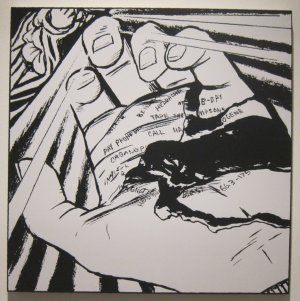A Quote by Steve Martin
I was very vulnerable to criticism for many years. I could read a bad review and remember it my whole life.
Quote Topics
Related Quotes
One thing I noticed over time is that if I got a bad review, usually the bad part of it was at the very end. I could tell that nobody read the whole review because they would just say, "It was great to see the review!" In a way, my brain shuts down at the end of an article. It doesn't really want to go to the end.
Writers are funny about reviews: when they get a good one they ignore it-- but when they get a bad review they never forget it. Every writer I know is the same way: you get a hundred good reviews, and one bad, andyou remember only the bad. For years, you go on and fantasize about the reviewer who didn't like your book; you imagine him as a jerk, a wife-beater, a real ogre. And, in the meantime, the reviewer has forgotten all about the whole thing. But, twenty years later, the writer still remembers that one bad review.
I don't have a very high opinion, actually, of the world of criticism - or the practice of criticism. I think I admire art criticism, criticism of painting and sculpture, far more than I do that of say films and books, literary or film criticism. But I don't much like the practice. I think there are an awful lot of bad people in it.
My main qualm about TV criticism has been when people review TV the way they review movies. They watch the pilot, and write a definitive review of the show. The obvious analogy is that you don't read the first eight pages of a book and then talk about whether the book works or not. People want so desperately in this day and age to declare something thumbs-up or thumbs-down that they declare it immediately.
Incidentally, the very, very first review that James Lavelle and I saw of Endtroducing was very negative! It was in The Wire, and the context of the review was that, you know, Mo'Wax was so far behind Ninja Tune. Heheheh. And people wonder why there was this sense of a feud between labels! We just kind of looked at each other and we were like, 'Oh, well, let the floodgates open!' But, not to be facile, that was literally the last bad review I ever saw for that album.


































